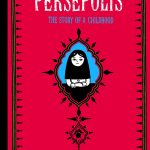Hello everyone!
I hope everyone has been having a wonderful March!
This past week, we read and discussed Disgrace by John Coetzee in our ASTU 100 class. Coetzee is a white South African author. Disgrace is a novel about a white man, David Lurie, in South Africa in the post-apartheid period, who teaches Communication at a university and is disgraced by the consequences of his affair with a student, Melanie Issacs (the affair arguably was almost rape involving Lurie taking advantage of Melanie’s emotional vulnerability). He then moves to live in a rural area with his daughter, Lucy. However, when Lucy is raped, Lurie is forced to question his life and actions, including what he did to Melanie. The novel itself is very raw and very hard and uncomfortable to read, but it brings forth some really vital questions about the form of justice pursued in South Africa about Black oppression and apartheid and the Truth and Reconciliation Commission.
The Truth and Reconciliation Commission was established in South Africa in 1995 to bring out the “truth” of human rights violations by asking the victims to tell the stories of their oppression, and offering reconciliation for the whites and the blacks. The perpetrators could also share their accounts and ask for amnesty. The focus was on uncovering these stories, and not prosecuting the perpetrators. The hearings involved many instances of white perpetrators being ridden with guilt and emotional burden of the crimes they committed and oftentimes they would break down in tears during the hearings. However, during one of the class discussions, a question I brought up was how much of this truth and remorse real and how much of this was performative? Would these people still have felt guilty had the system continued to function the way it did during colonialism? While I’m not denying the fact that listening to these horrific stories firsthand would have brought into light some of the injustices suffered by these black people, which the white perpetrators who were just complying to the norms of the existing system might not have realized, I merely wonder if they would have felt the gravity of the impact of their actions the same way if TRC had not been established.
This question is also brought up in the novel. David Lurie is remorseless about him practically forcing his relationship with Melanie on her. Even when his reputation is ruined, he blames Melanie for it, instead of questioning his own actions. However, after his own daughter is raped, he goes to Melanie’s house and apologizes to her and her family. But Melanie’s mother responds to this by saying that everyone is sorry when they are caught. This hypocrisy is further seen when Lurie vehemently tries to convince his daughter to report her rape to the police – the exact same thing he blamed Melanie for doing. Similarly, in the book The Country of My Own Skull, Krog talks about how “truth” is a hard word for her to write. This made me wonder if there was even a truth of emotions in white people during the TRC hearings? I think that when they were just being complicit to the larger system of apartheid, the guilt of their actions didn’t exist because the responsibility of their actions was attributed to the larger social norms – an instance of deindividuation, or a loss of consequences of individual action acting in a group. It was not as real. But when they were individually attributed their crimes, the blame and responsibility, the impact of being caught, and the social norms of the situation of the TRC was what made them feel remorseful. This makes me wonder if TRC can actually ever achieve real turth and reconciliation.
We see a similar pattern here in Canada where even though the federal government tries to reconcile the Indigenous communities and the predominantly White community, it often displays only performative justice. When it comes to actually hearing indigenous protests and working to restore equality and rights for them, the government usually fails. For example. big projects like the Kinder Morgan pipeline and the SITE-C dam, both of which violate indigenous rights and have been vehemently protested, are still being pursued by the government for the apparent economic benefits. This makes me question if we’re using performative justice and truth as a cover up for not pursuing actual justice and truth. How effective, then, are our mechanisms for justice and truth? I think there is a clear need for us to step back and evaluate the grand displays of justice we often see in the media and consider how much justice is actually being provided to these communities.
Until next time!

